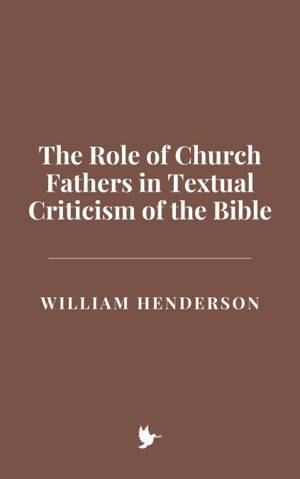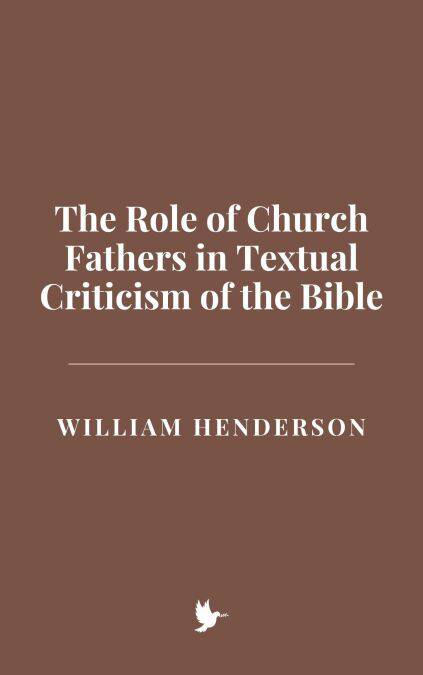
- Afhalen na 1 uur in een winkel met voorraad
- Gratis thuislevering in België vanaf € 30
- Ruim aanbod met 7 miljoen producten
- Afhalen na 1 uur in een winkel met voorraad
- Gratis thuislevering in België vanaf € 30
- Ruim aanbod met 7 miljoen producten
The Role of Church Fathers in Textual Criticism of the Bible E-BOOK
William HendersonOmschrijving
Textual criticism, the discipline dedicated to the study and analysis of the manuscript tradition of biblical texts, emerged as a crucial field of study during the early Christian era. Its primary purpose is to reconstruct the original wording of the biblical manuscripts, identifying and understanding the variants that exist across different copies. As such, textual criticism seeks to answer one of the most fundamental questions of biblical scholarship: What did the original text of the Bible say? This question carries profound theological, historical, and literary significance. The preservation of Scripture in its original form, or as close to it as possible, is not just a matter of academic interest but also deeply intertwined with faith, doctrine, and the authority of sacred texts.
The role of the early Church Fathers in shaping the field of textual criticism cannot be overstated. Long before modern textual critics developed the methods we use today, the Church Fathers were actively engaged in preserving and transmitting biblical texts, often in the face of persecution, doctrinal disputes, and the challenges of an increasingly diverse Christian community. They contributed to textual criticism through their exegetical works, biblical commentaries, letters, and translations. In these writings, the Fathers not only interpreted Scripture but also preserved its integrity, dealing with textual variants, linguistic issues, and questions of canon.
Specificaties
Betrokkenen
- Auteur(s):
- Uitgeverij:
Inhoud
- Taal:
- Engels
Eigenschappen
- Productcode (EAN):
- 9798230333203
- Verschijningsdatum:
- 15/03/2025
- Uitvoering:
- E-book
- Formaat:
- ePub

Alleen bij Standaard Boekhandel
Beoordelingen
We publiceren alleen reviews die voldoen aan de voorwaarden voor reviews. Bekijk onze voorwaarden voor reviews.











